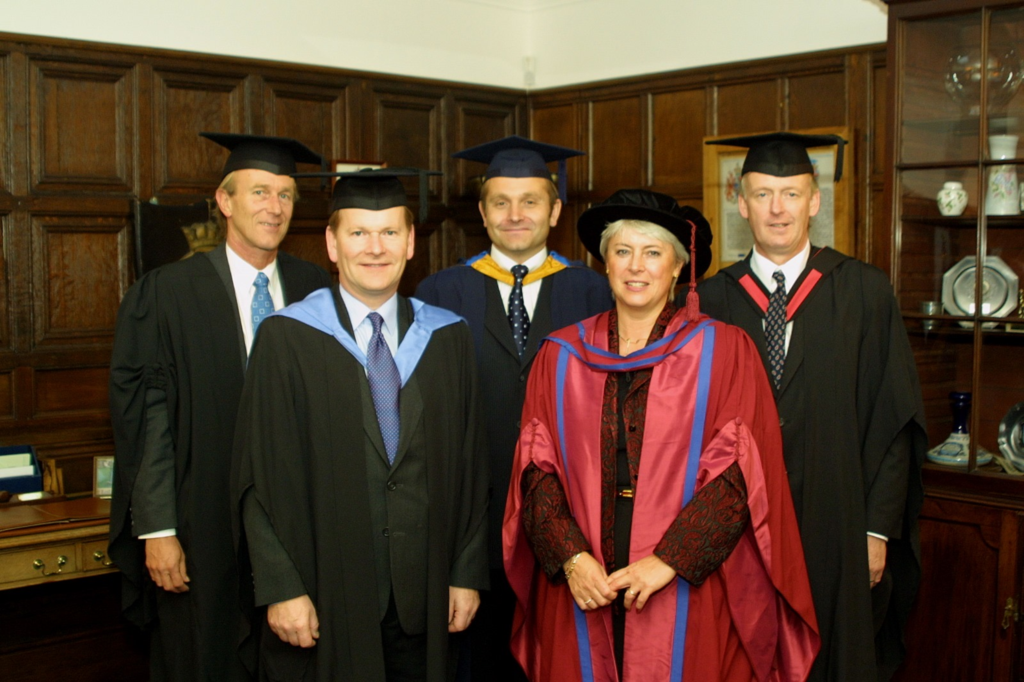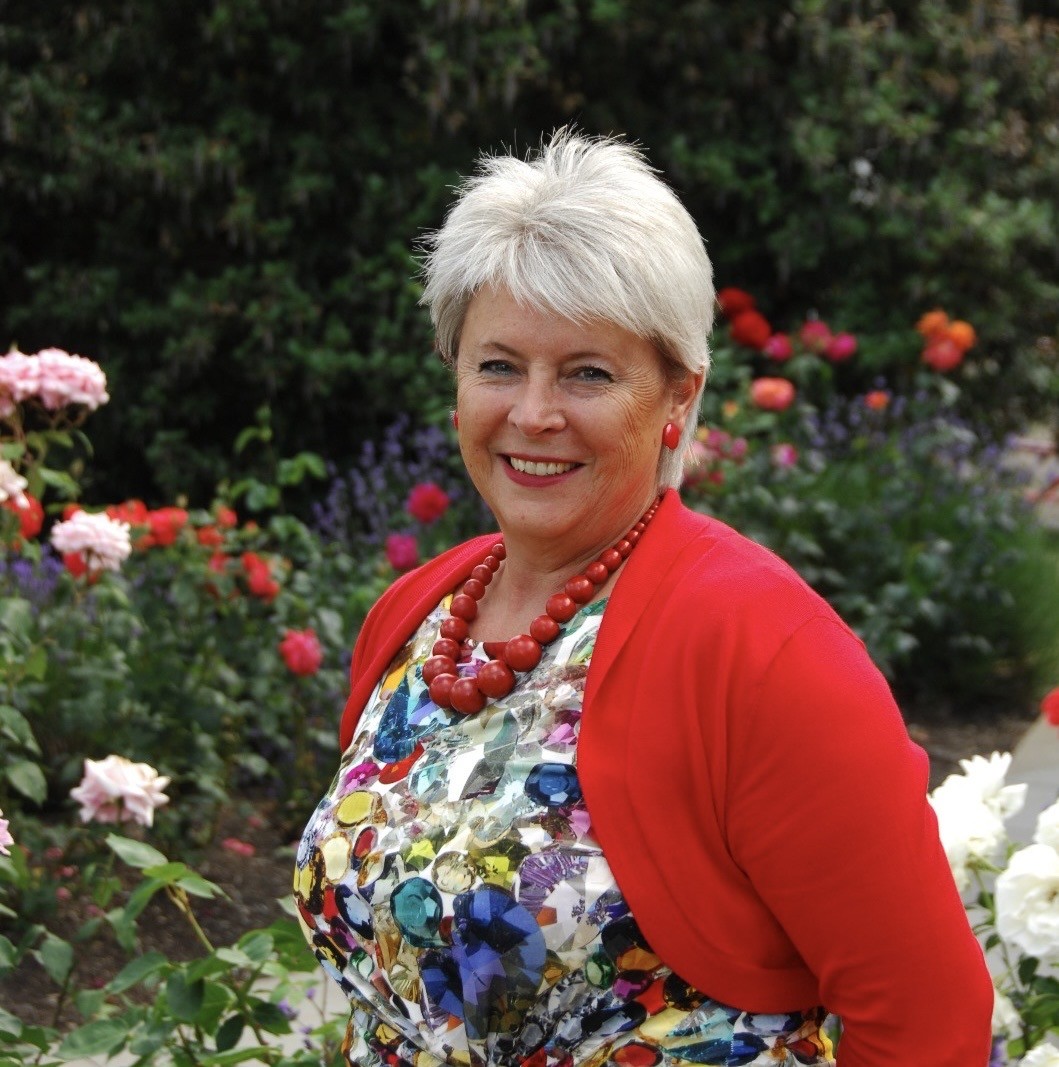Dr. Ann Ruthven (formerly Williams) had a remarkable career at West Suffolk College, starting as a part-time lecturer in 1979, working in the Annex in Northgate Street, and rising to become principal from 2002 to 2013. During her tenure, she led the college through significant developments, including major building projects and academic improvements. Under her leadership, WSC earned an “Outstanding” rating from Ofsted and became known as a high-performing institution both locally and nationally. Ann was also a key figure in shaping educational strategy through her work on various national boards. Her dedication to staff and student success earned her several accolades, including an OBE for Services to Further Education.
Ann reflects on her time at WSC, grateful for the wonderful team of staff she was privileged to lead and proud of the legacy the whole team has left behind.
Ann’s timeline with West Suffolk College
– 1979-80: Part-time lecturer
– 1981: Full-time lecturer
– 1986: Head of Prevocational Education
– Pre 1992: Director of Curriculum, Quality and Student Services
– 2002 – 2013: Principal
Ann’s journey at West Suffolk College, in her own words
While principal of the college, I established my own senior management team: VP David Howells, Asst Principal’s Curriculum Quality and Student Services Phil Thirkettle, Marketing and Business Development Martyn Wagner, and Head of HR and corporation secretary Mick Fell. I could not have asked for better.
The college continued to perform well academically and was well known in East Anglia for this. This gave me the opportunity to be on several Educational Boards and national groups with influence over educational strategy.
We continued to invest in the training of our staff and the insistence that all teaching staff were teacher trained, which wasn’t a requirement of the profession in those days.
We continued the established values of the College (started by Nick Foster former Principal): RSVP and P (Respect Support Value Pride and Praise), which became a way of working for both staff and students and was very effective.

Forming the largest partnership in the country
Nick Foster established links with APU (Anglian Polytechnic University) now ARU (Anglian Ruskin University) and UEA, alongside Lowestoft, Kings Lynn and Gt Yarmouth FE colleges, to deliver Higher Education in the FE College. This enabled the universities to increase their numbers without needing extra facilities and staff, and provided a curriculum which gave progression for vocational students, as well as increasing opportunities for women returners in particular, and courses for employers. This partnership became the largest in the country and was very successful. In 1993 at Incorporation, Suffolk College had hoped that their HE numbers would enable them to split the HE students from the FE students and become an HE institution. However, by a small margin of student numbers, this was not granted. Early into my principalship, the Higher Education Council, along with pressure from Suffolk County Council, decided the county should have a university. I had to transfer the partnership HE numbers that we had allocated to us from APU and UEA to the developing University Campus Suffolk. This meant considerable change for the staff having to revalidate all of our provision. As WSC had the largest number of HE students outside of Suffolk College, I became a UCS Board member representing the FE partners. During this time, we had over 500 full and part-time HE students.
I am pleased that we played a significant role in the development of a university for the county and had such a thriving provision for undergraduates.
An Ofsted report to be proud of
West Suffolk College was known locally and nationally as highly performing since 1994. In 2006 we were graded ‘Outstanding’ following an Ofsted inspection. The report recorded “Leadership and Management are outstanding. The principal provides inspirational leadership and is ably supported by the senior team.” – I am particularly proud of this statement. Governance was also outstanding, which was led by Betty Milburn as the chair, who was a tremendous support to me and the Governors. She was awarded an MBE. Phil Thirkettle was directly responsible for curriculum and Quality and Student services and Martyn Wagner for Apprentices, and this is a testament to their leadership. This wonderful outcome was a tribute the whole college team.
Constructing success: the building boom era
From my first week in post, when I had to confirm to the Governors that I approved a new build that had been planned, I did not approve it, but changed it. This period of my principalship was one of building and refurbishment.
The fact that we were a highly performing college attracted lots of funding opportunities. At one time, the projects team alone contributed £3m to the bottom line. Recruitment for FE and HE Apprentices and Adult education was buoyant, and short courses encouraged by government funding gave us a full student count of over 25 thousand. At this time, the government also started investing in FE infrastructure and this all came together at the right time for us.
My first new build, which was completed in my first year, was to provide the students with learning difficulties and disabilities with facilities that better met their needs and the extra space that they were desperate for: New Minden House.
We then had a new build for art and design, which increased the breadth of the curriculum and added science laboratories for health, forensic science and sports students. It also increased the student dining facilities: Leonardo House, quite a statement building, setting off the lovely rose gardens.
The library was remodelled and expanded to provide better study space, and Student Services also expanded to meet the increasing needs of the growing student population.
Suffolk House, a 1960s building riddled with asbestos, was completely refurbished. A huge job! All building and refurbishment work needed to be carried out during holidays and was on a really tight schedule to be ready for the next term or academic year. Suffolk House became a designated HE zone, and a lecture theatre was created out of two old engineering labs.
Construction and building services were moved off site into a fully refurbished location at Anglian Lane, after we purchased what had been Vitality Bulbs. The asbestos was removed, with shift work around the clock. The area was redesigned to provide for Brickwork, Electrical Installation and Plumbing and Carpentry and Joinery courses. A brick work area was also located on this site. This provided more realistic accommodation for the trades and much more space for an expanding curriculum area. This became known as The Milburn Centre, named after the chair of Governors, Betty Milburn.
Edmund House, being vacated, was refurbished and expanded with building works to provide better facilities for Dance and Drama, along with new facilities for a new curriculum in Media studies and better classroom space for Prince’s Trust and NEET (Not in Education Employment or Training students).
Hair and Beauty, Hospitality and the restaurant and kitchens were refurbished. All toilets on the campus were also refurbished, and decorating of classrooms and corridors was on a rota for every holiday. The college looked really smart! The staff enjoyed the upgrades to their workplace.
The gardens were maintained beautifully, with wonderful rose beds blooming in the summer and autumn term.
My last building project was The Gateway, the front of the college. I tried really hard to have more of the old wall removed to enable the building to really make the visual impact it deserves, but did not achieve this. I moved into my office in that building two weeks before I retired on 30 August 2013, just before the start of the autumn term.
All of the building work was directly managed by David Howells, ably assisted by Julia Moore, a formidable team with inspiration and good design skills, they have provided our students with facilities they deserved.
Fairies, fun and festivities: life beyond the classroom
The college had a huge profile within the local community and with employers, and hosted many tremendous events celebrating student success. We had graduations in the cathedral, as well as prize givings, a wonderful venue. Hair and Beauty competitions were in the old Corn Exchange, these were managed by Martyn Wagner and his team.
We enjoyed a great Staff Association with parties for the staff twice a year. There was a good turnout, with the caretaking team and managers dressing up and providing much good-humoured hilarity. I remember one occasion where the chairman, Betty and I were instructed to dress up as fairies, so we did with wings, wands and tutus! I can also remember having to do limbo dancing. The raffles were amazing, the compere Rob, a bit risqué but so funny. A great way to end term for the staff.
College awards and accolades:
– Ofsted Outstanding
– Investors in People including the higher-level Management Module
– 2007 Sunday Times 100 Best Employers (where the voted for the college by filling out a questionnaire provided to hundreds of employers across the country who had IiP)
– Beacon College Status
Personal awards:
– Honorary Doctorate UCS
– Freeman of the Borough of St Edmundsbury
– East Anglian Businesswoman of the Year Finalist 2005
– OBE for Services to Further Education
Final thoughts from Ann
I am proud of the achievements of West Suffolk College’s staff and students. Together, they created a wonderful place in which to work, and I was privileged to have been able to lead them.
My advice to future staff of Eastern Education Group would be:
– Teaching and learning must always be of the highest quality and lead decision making.
– Learn from mistakes and always focus on improvement.
– Invest in all your staff. Provide good training and empower staff.
– Maintain the quality of the facilities, (don’t forget the toilets!)
– Always strive to do your best and be proud of your achievements.
– Enjoy your job!




